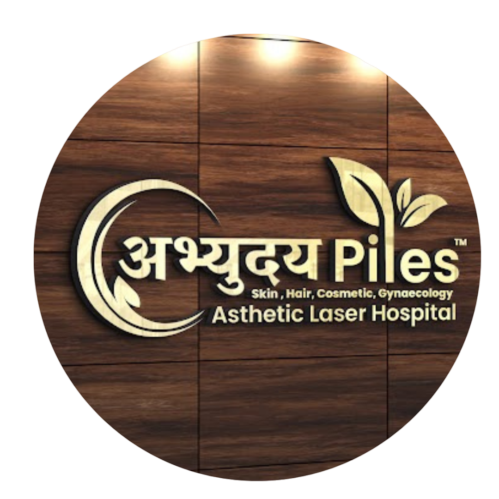Piles, commonly known as hemorrhoids, are a widespread condition that affects millions of people globally. Understanding the piles causes and piles early symptoms is crucial for early detection and effective treatment. In this blog, we will delve into the factors that lead to the development of piles, the symptoms to watch out for, and the various treatment options available, including piles treatment in Nagpur. By the end of this article, you will have a comprehensive understanding of how to manage and potentially prevent piles, and where to find specialized care in Nagpur.
Understanding the Causes of Piles
Hemorrhoids occur when the blood vessels near the anus or in the lower rectum enlarge and become inflamed. Several factors can contribute to this condition, making it important to recognize the piles causes to take preventive measures.
1.Straining During Bowel Movements
One of the primary piles causes is straining during bowel movements. This often occurs due to constipation, which puts extra pressure on the rectal veins, leading to their swelling.
2. Prolonged Sitting
Sitting for extended periods, especially on the toilet, can increase pressure on the rectal area, contributing to the development of piles. It is advisable to avoid prolonged sitting and take regular breaks to stand and move around.
3. Pregnancy
Pregnancy is another common piles cause due to the increased pressure on the pelvic veins from the growing uterus. Hormonal changes during pregnancy can also affect the veins, making them more prone to swelling.
4. Obesity
Excess body weight puts additional pressure on the lower body, including the rectal area. Maintaining a healthy weight through diet and exercise can help reduce the risk of developing piles.
5. Dietary Factors
A low-fiber diet can lead to constipation, which is a significant piles cause. Incorporating more fiber-rich foods into your diet can help maintain regular bowel movements and reduce the risk of piles.
Recognizing the Early Symptoms of Piles
Early detection of piles is essential for effective management. Being aware of the piles early symptoms can help you seek timely medical attention and alleviate discomfort.
1.Painful Bowel Movements
Pain during bowel movements is one of the piles early symptoms. This pain can range from mild to severe and is often accompanied by a feeling of discomfort.
2.Itching and Irritation Around the Anus
Itching and irritation around the anus are common piles symptoms. This can be particularly bothersome and may lead to excessive scratching, which can further aggravate the condition.
3.Swelling or Lumps Near the Anus
Visible swelling or lumps near the anus are a clear indication of piles. These lumps can be either internal or external and may vary in size. The presence of these lumps is a significant piles symptom that requires medical attention.
4. Bleeding During Bowel Movements
Bleeding during bowel movements is a piles symptom that should never be ignored. This bleeding is usually bright red and can appear on toilet paper, in the toilet bowl, or on the surface of the stool.
5. A Feeling of Fullness in the Rectum
A feeling of fullness or incomplete evacuation in the rectum can be a piles symptom. This feeling is often caused by the pressure exerted on the rectal walls by the swollen blood vessels.
Effective Treatments for Piles
There are several treatment options available for piles, ranging from home remedies to medical interventions. The appropriate treatment depends on the severity and type of piles you have. Consider the following treatment options for effective management:
1. Home Remedies
Home remedies can provide relief from mild piles symptoms. These include:
- Warm Baths: Taking warm baths, especially sitz baths, can help soothe the inflamed area.
- Fiber-Rich Diet: Increasing fiber intake can soften stools and reduce straining during bowel movements.
- Hydration: Staying well-hydrated helps prevent constipation and reduces the risk of piles.
2. Over-the-Counter Treatments
Over-the-counter creams, ointments, and suppositories can provide temporary relief from piles symptoms. These products often contain ingredients like hydrocortisone or lidocaine to reduce inflammation and pain.
3. Medical Procedures
For more severe cases of piles, medical procedures may be necessary. These include:
- Rubber Band Ligation: This procedure entails placing a small rubber band around the base of the hemorrhoid, effectively cutting off its blood supply.
- Sclerotherapy: This treatment involves injecting a chemical solution into the hemorrhoid, leading to its shrinkage and eventual disappearance.
- Hemorrhoidectomy: In severe cases, surgery may be required to remove the hemorrhoids.
Conclusion
Piles are a common condition that can cause discomfort and inconvenience. Understanding the piles causes and piles early symptoms is essential for early detection and effective treatment. By recognizing the factors that contribute to the development of piles and adopting healthy lifestyle habits, you can reduce your risk of developing this condition. If you experience any of the symptoms mentioned in this blog, it is important to consult a healthcare professional for a proper diagnosis and treatment plan. For those in Nagpur, specialized piles treatment is available at reputable piles hospitals in Nagpur, offering advanced care and expert medical attention. With the right approach, you can manage and potentially prevent piles, leading to a healthier and more comfortable life.

